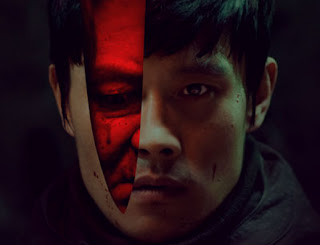Horror is unique among literary and film genres, in that the
experience it promises the audience appears to be a negative one. Comedy infers
laughs. Thrillers infer thrills. Erotica, arousal. But horror puts it right out
there: this will, or should, be scary. It will horrify you. Like any genre,
horror has evolved an array of traditions and tropes, so that creating a work
of horror can be done simply by employing elements that have been established,
assembling them in a recognizable order, and trusting the audience's prior
experience with those elements (or its indulgence) to do the work for you.
These are rote exercises, with little or no genuine resonance. A truly great
horror movie is something one should not be in a great rush to watch again, or,
more accurately, a movie greatly effective at being genuinely horrifying should
not. A great horror movie can be a great movie without inducing all-consuming
terror, or being overly disturbing. But a truly horrifying movie (precluding
masochism on the viewer's part, in which case, disregard nearly all of this
essay) should be difficult to watch.
The recent run of horror and horror-adjunct movies in South
Korea are in a unique position as cultural artifacts to resonate with American
audiences, with the large historical presence of America and American culture
following the war against North Korea in the 1950s. Briefly, the resultant
balance of cultural similarities and differences, not to mention relative
economic prosperity of late, leads to movies we in America have little problem getting
on a fundamental level. Kim Ji-woon's 2010 picture I Saw The Devil is,
with the possible exception of the entire cast being Koreans, indistinguishable
from a Hollywood movie in terms of film grammar. It's a work of tremendous skill,
with intense, committed performances by its cast, some truly exquisite
compositions where Kim and cinematographer Lee Mo-gae frame characters multiple
times within the frame, creating a claustrophobic tension only augmented by
editing and score. Kim Ji-woon is a very good director and I Saw The Devil
a tremendous piece of craft. But I never want to see it again.
It's an odd thing to say, but I Saw The Devil is
almost too good at what it does. The story of a secret agent who exacts
protracted and particularly cruel revenge against the vicious serial killer who
murders his pregnant wife, almost the entire two hours and twenty minutes are
brutally intense. It is an extraordinarily violent movie, featuring seemingly
every way one human being can do physical harm to another (I should make clear,
I like violent movies; this one's just ... really violent). The serial
killer is shown graphically murdering and raping multiple victims, and even the
nominal hero engages in some fairly shocking premeditated brutality. The movie
has nothing to say about violence, man's capacity for it, or the emotional toll
taken by either. That very pointlessness is an argument in the movie's favor as
horror, as it adds to the almost physically painful effect of watching the
movie. It's brilliantly constructed, but a genuinely harrowing piece of work
that leaves one stunned and hurt after watching.
So, is this horror? Is the purpose of this genre unlike all
others to be genuinely harrowing and disturbing? Or is horror meant to tease and
titillate that part of the mind, without going all out and actively making the
audience feel bad? This is a case where feeling “bad” has a purpose beyond
torturing oneself, as being scared is a visceral thrill that under the right
circumstances can be quite enjoyable. The heart races, the senses sharpen,
adrenaline flows. Fun. But then there's I Saw The Devil, which is not
fun, at all. But it is, in a way reinforced by meticulous, immensely skilled
craft, genuinely horrifying. That there's no point to it beyond craft only
deepens its horror.
None of the above should be read as a rebuke or dismissal of
horror as a genre. On the contrary, it is, per the introduction, the only genre
of its kind. Horror is not comfort. It is not an anesthetic. It is art made
from the genuine palpable fear known to us all. There's a degree of
abyss-gazing involved with watching a good horror movie, and it is thus not for
the faint of heart. Fear left unexamined
is unconquerable. Thus, horror, as a genre, is absolutely essential.





No comments:
Post a Comment